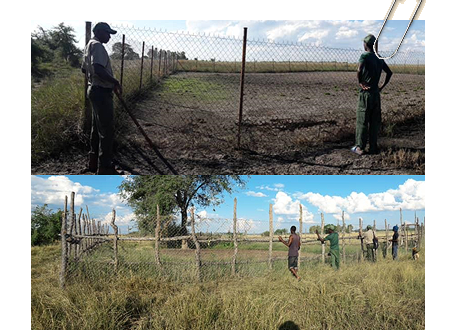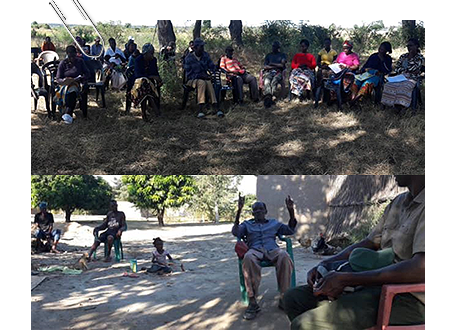Lion Rapid Response Team established in Chobe River conservancies
The Botswana-Namibia border is delineated by the Chobe River, with the Chobe National Park on the Botswana side offering a safe refuge for wildlife, and mixed-use conservancies on the Namibian side hosting wildlife and livestock areas. When large predators cross the Chobe River into communal grazing lands, they cause fear amongst local farmers.
Human-wildlife conflict hinders biodiversity conservation and impacts impoverished rural communities in the region. When predators, particularly lions, cross from protected areas into communal lands, the result can be a loss of livestock belonging to local farmers and the subsequent retaliatory killing of lions.
At the current time, the problem is exacerbated by extreme drought conditions prevalent across southern Africa. The Chobe River has, in places, been reduced to a series of disjointed water pools, easily allowing wildlife to cross between the Chobe National Park and livestock areas in Namibia.
Human-wildlife conflict in the Namibian conservancies of Kabulabula, Kasika, Nakabolelwa and Salambala, bordering the Chobe River has led to the intervention of several non-governmental organizations (NGOs), the Kwando Carnivore Project, WWF-Namibia and the conservancy-support NGO Integrated Rural Development and Nature Conservation (IRDNC), by facilitating community meetings to get bottom-up resolutions on reducing the conflict and the loss of lions due to retaliatory killing.
The four conservancies, which are also the most affected when it comes to lions attacking livestock, agreed to jointly establish the Chobe Lion Rapid Response Team. This team has long-term goals to mitigate human-lion conflict in the region, including the construction and renovation of predator-proof kraals for livestock, and linking reward payment schemes to communities for positive coexistence with lions.
The four conservancies came together and decided to select two game guards from each conservancy to add to their wildlife monitoring works, an additional role of implementing human-lion conflict mitigation measures. The game guards will monitor existing lion-proof kraals, identify new potential sites for more kraals, raise awareness on human-wildlife conflict and co-existence, engage cattle headers and livestock farmers, provide early warning information to communities, and quickly respond to lion issues reported.
The Team was set to commence work in May 2020, after receiving quarterly contributions from lodge operators from both Namibian and Botswana sides of the Chobe River. Unfortunately, Covid-19 travel restrictions had a great impact on tourism, and lodges were unable to contribute to the team’s operational costs. While the Lion Rapid Response Team awaits to fully operationalize, the Kwando Carnivore Project is currently assisting with building lion-proof kraals and monitoring the movement of lions in the area.
A fully functional response team will not only reduce the human-wildlife conflict caused by lions in the area but will help promote tourism as the number of lion populations are maintained to attract tourists. A total of 49 or more livestock farmers are targeted to benefit from the installation of lion-proof kraals. This will further become a self-sustainable response team through income generated from tourism and other nature-based economies, through Payment for Ecosystem Services (PES) levies collected from tourists for the protection of specific species of high tourism interest such as lion.

- Lion-proof kraal in Kabulabula and Kasika conservancies, north-east Namibia

- Payment for Ecosystem Services meetings held with farmers around Kasika and Kabukabula Conservancies, north-east Namibia.



